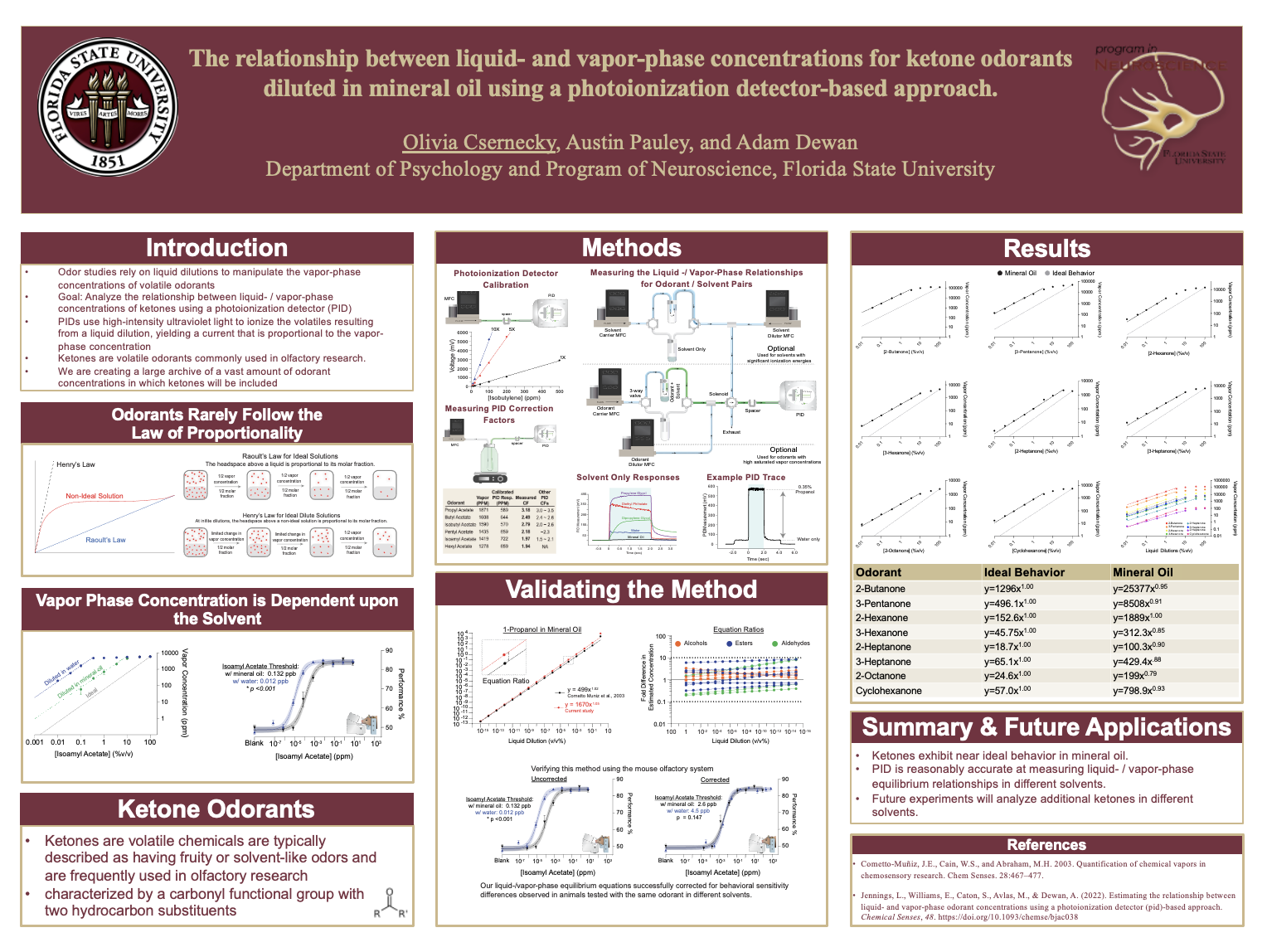Research Symposium
23rd annual Undergraduate Research Symposium, April 6, 2023
Olivia Csernecky Poster Session 3: 2:45 pm - 3:45 pm/ Poster #291

BIO
My name is Olivia Csernecky and I am a Presidential Scholar from New York. I am currently a neuroscience major on the premed track. I am very interested in neuroscience research as I am in my third year as a neuroscience lab assistant. I studied Ketamine Addiction in the Kabbaj lab for two years and I am currently studying the Olfactory system in the Dewan lab. In the future I hope to pursue a career in medicine in either oncology, orthopedics or neurology.
The relationship between liquid- and vapor-phase concentrations for ketone odorants diluted in mineral oil using a photoionization detector-based approach.
Authors: Olivia Csernecky, Dr. DewanStudent Major: Behavioral Neuroscience
Mentor: Dr. Dewan
Mentor's Department: The Department of Psychology Mentor's College: The College of Arts and Sciences Co-Presenters:
Abstract
Ketones are characterized by a carbonyl functional group with two hydrocarbon substituents. These volatile chemicals are typically described as having fruity or solvent-like odors and are frequently used in olfactory research. These studies routinely utilize liquid dilutions to create different vapor-phase concentrations. Unfortunately, the relationship between liquid dilution and vapor concentration is dependent upon the solvent and can significantly deviate from predictions based on ideal solutions. In other words, a 10-fold liquid dilution rarely results in a 10-fold decrease in the amount of molecules in the vapor phase, particularly at higher concentrations. Thus, the relationship between liquid dilution and vapor-phase must be empirically determined. The goal of this study was to assess this relationship in commonly used ketone odorants using a photoionization detector (PID) based method. PIDs use high-intensity ultraviolet light to ionize the volatiles resulting from a liquid dilution, yielding a current that is proportional to the vapor-phase concentration. The data was fit with a power function, yielding a liquid-/vapor-phase equilibrium equation (e.g., 3-Heptanone: y=429.4x0.88) that can be used by olfactory researchers to obtain more accurate estimations of vapor-phase ketone concentrations.
Keywords: Olfactory, Photoionization Detector (PID), Ketones


